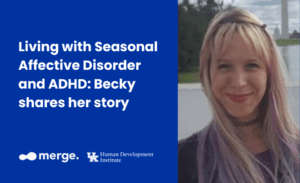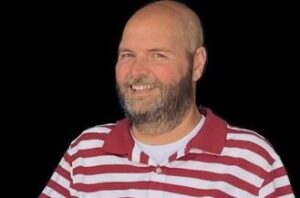Medical knowledge can advance so quickly that it’s a wonder when any tool stands the test of more than a few years. HDI’s Preservice Training Modules were created to help train medical professionals for how to interact with and treat patients with disabilities, and they are still being used decades after they were created.
“Based upon the US Surgeon General’s Report, Closing the Gap (2002), healthcare providers, physicians, nurses, physician assistants, dentists, were not really well-equipped to meet the needs of people, especially people with more significant disabilities,” said Dr. Harold Kleinert, co-instructor for the Kentucky LEND program. “There was a national need to do training for these healthcare providers, both in-service as well as pre-service, as well as meeting the needs of people with developmental disabilities.”
Through grant funds from the Commonwealth Council on Developmental Disabilities, HDI worked with a team that included self-advocates, family members and medical and allied health faculty from the University of Kentucky, University of Louisville, and Eastern Kentucky University. While they aimed to create a resource that would be useful to medical and allied health personnel, the impact they’ve had is far beyond what anyone expected.
“Our self-advocate and family members played huge significant roles in this,” Kleinert said. “It was a tremendous amount of collaboration, and it amazes me that these modules are still accessed today.” The idea was that the modules would simulate a healthcare encounter with a person with a disability as much as possible. While a lot of healthcare training uses standardized patients, essentially actors trained to replicate what a normal healthcare encounter will be like, it can be difficult to find standardized patients with disabilities. Where they can, the training modules fill in these gaps. “There are decision points where the users had to decide what they would do next based upon the information provided,” Kleinert said. “You couldn’t move forward unless you provided a response. It was very interactive.”
This same technology was used to help medical professionals learn how to deliver a Down syndrome diagnosis to a family, either prenatally or postnatally in a subsequent HDI grant funded by the US Centers for Disease Control and Prevention (CDC). “A tremendous amount of research shows that physicians really didn’t have the most up-to-date knowledge of Down syndrome,” Kleinert said. “That wouldn’t have happened but for the work we had previously done with the pre-service health training modules.”
Merri Jones, an Associate Professor of Dental Hygiene, uses HDI’s modules for her classes. She first encountered them while teaching a course on special populations about five years ago.
“They were exactly what we would do,” Jones said. “When they see Hunter with Down syndrome and Hunter’s father accompanying him to his dental appointment, they know that’s real…Students get the sense that they can see themselves doing that.”
HDI’s approach is evidence-based and much of what they discuss, especially around communication, hasn’t changed. Jones thinks they’ve worked wonders and helped prepare her students to be confident about treating patients with disabilities.
“Research shows that the reason dentists do not see patients with special needs is they don’t feel they have the training. They don’t feel confident,” she said. “My thought is that as we prepare dental hygiene students, they’re confident and competent and more likely to see patients with disability. The patient’s comfortable, and most importantly, the patient recognizes that.”
And as more people become accustomed to treating patients with disabilities, they help their colleagues learn more. This increases access to care among a vulnerable population.
“The modules have really helped me as a dental hygienist learn more about not only the special needs that persons present with, but what other professionals do that support them,” Jones said. “It really helps us provide the best treatment planning and the best care for our patients.”



